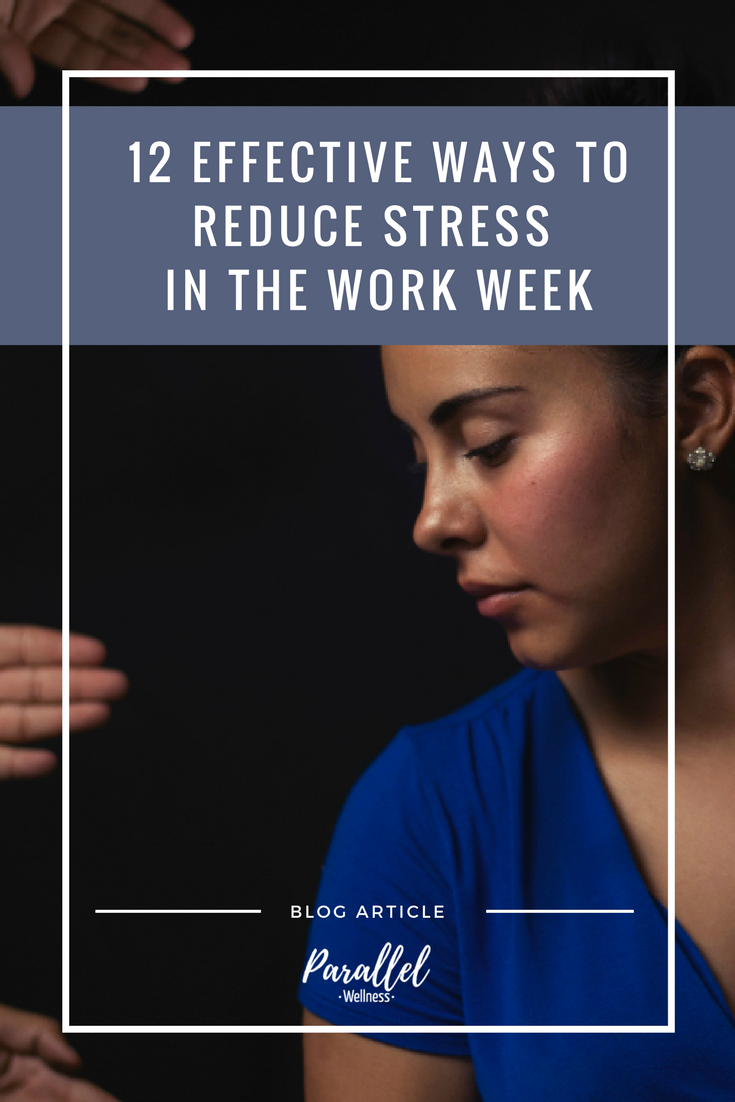I aspire to meet the person, especially living in Vancouver or the Lower Mainland, who arrives home at the end of the day, every day, feeling completely relaxed and restful. Many of us are looking for strategies to reduce stress and decompress throughout the week. A good song playing in the car on the commute home, a calm walk through the neighbourhood, a yoga class or gym session after work, or even meeting with friends for a tea or another indulgence, all have their natural ways of helping us to feel more centered and relaxed at the end of the day. However, we often don’t have an opportunity to do these things, leaving us revved up from what the day has thrown our way. We struggle to unwind, looking for strategies to reduce stress so we may more fully enjoy our work week.
Our nervous system – the system that pumps adrenaline through our bodies to wind us up when we need to get going or remain alert in a situation that could be perceived as threatening – is conducted by an interplay of both our mind and physical bodies. This suggests that in most cases, the most effective strategies to reduce stress at the end of a high paced day, utilize both mindful and physical strategies to comprehensively support our minds and bodies to “wind down.”
I challenge you to try these strategies to reduce stress, being aware of the affects it has on your nervous system and ability to feel soothed, rested or and more relaxed.
Mindful Strategies to Reduce Stress
1. Meditation
Although many people use meditation as a method of relaxation to clear their minds of the overload of thoughts and concerns, meditation can also be used as a healthy way to process thoughts in a calmer manner. Positioning ourselves in any comfortable position, closing our eyes and letting the thoughts come to surface one by one in a relaxed manor can allow us to “collect our thoughts” and feel more calm and organized with them. This often leads to the next technique.
2. Journaling
The effects and mental benefits of lists, journaling, and externalizing our thoughts is highly effective for people that come home with an overload of information in their minds. With journaling, we again, can process, externalize and organize information often making it feel more manageable to us. Also, the sheer act of writing typically slows down and regulates the nervous system.
3. Phoning a Friend/Family Member/or Support
The key here is to phone someone who has proven in the past to be “soothing”. Vocalizing our thoughts or concerns, and being heard by a support person can support us to gather our thoughts and begin to feel more comforted from the connection to them.
4. Reading
If we are able to read in this state, reading can have a powerful effect to redirect our minds ideally to more soothing concepts. I remember a time period in my academic past when I wouldn’t go anywhere without my monthly subscription of my favourite magazine at the time. Regardless of how anxious or pressured I felt about an assignment I had to do that night or a future social outing, the articles always changed my focus to something that felt healthy, and inspiring to me. This allowed me to shut off from anxiety provoking thoughts and effectively cope in the moment.
I believe the goal of mentally decompressing is finding a method that works for you feel more “ease/peace.” For some of us, we may have ongoing concerns that we don’t feel we can make peace with. We may be grieving a loss, awaiting an admission to a workplace, or school program, in the midst of an unresolved conflict that has required space, etc. And accepting this is an important piece to ending the temporary struggle.
Simply vocally saying aloud “WOW this sucks!” when in a time of discomfort has allowed me to decompress and sit back a little more.
In situations like these it isn’t natural for us to feel completely peaceful. But by mindfully acknowledging what it is that we are feeling unsettled about, we can then do our best to support the associated discomfort. Here I share some effective strategies to reduce stress during the work week, however other emotional supports may be necessary depending on what you acknowledge you need. Naming the discomfort and knowing it is something you can speak to a counsellor with in the near future, phone a friend or family member about, maybe not resolve right now, but resolve tomorrow or the next day – or maybe just accepting you’re not going to feel optimal for a little while, may be enough to turn down the intensity of our concerns and give our nervous systems a break, despite the circumstances. In my personal experience, simply vocally saying aloud “WOW this sucks!” when in a time of discomfort has allowed me to decompress and sit back a little more.
Physical Strategies to Reduce Stress
The art to working with our nervous system is finding ways that we can turn on our autonomous nervous system, the one we experience in a restful state. Engaging our senses (site, smell, hearing, touch, taste) has always been an effective way to bring our focus into the present moment and kick on the autonomic nervous system.
5. Just Breath
Ultimately, whether you listen to music, have a good chat, or go for a run, it will be accompanied by a series of exhales. This is the physical decompression. The most direct way to do this is to count our breaths and slow our exhales. The 4:7:8 Method is well known for it’s relaxation effectiveness. You want to breath in for 4, hold it for 7, and then exhale for a count of 8, and repeat it until you feel your body come into a more relaxed state. Sometimes this can take some time, so have patience, it is well worth the effort! In doing this, we begin to slow our heart rate and regulate our stress response. Breathing is our body’s speedometer. If we slow it down, the rest of our body will too.
6. Take a Warm Shower or Bath
The temperature and touch affect of showers or a bath also have a direct influence on the nervous system, putting us in a more relaxed state, starting with our muscles.
7. Listen to Music
If you are a musical person, different sounds can have a direct effect on our nervous system and ability to self-regulate. Just like high beats can lift you up, soothing sounds can wind you down. Slow physical movements to the rhythm of relaxing music can help all the more!
8. Use a Heating Pad or Blanket
This is a personal favourite – Unless you are someone that does not like heat, I find the effect of placing/hugging a heating pad against my abdomen to be highly effective in assisting my body to relax.
9. Light Scented Candles or Oils
Our olfactory system has incredible psychological benefits. If we have a memory, and made an association with a certain smell to a time when we felt soothed and relaxed, this scent may assist us to return to this state in the present. Vanilla, pumpkin, lavender, etc. are all smells that have typically been associated with a peaceful state at some point in one’s life and by burning them in one’s environment can directly affect their mind/body in the present. You can even create a new positive scent association by combining a scent with deep breathing exercises and some of the other strategies to reduce stress listed here. We particularly like using essential oils with a diffuser from Saje Wellness.
10. Sip a Favourite Non-Caffeinated Tea or Beverage
Holding and drinking a tea engages several of our senses all at once – touch, taste, and smell. The heat is also often effective in soothing the body.
11. Try a Physical Position to Calm the Nervous System
Option 1: Lying on your back with our legs up against the wall or lying in any position where your legs are elevated directly turns on our autonomic nervous system making us feel relaxed. There really is merit in “putting your feet up at the end of the day”.
Option 2: Child’s pose – This position is very effective in decompressing the nervous system! It is a must try!
12. Get a Massage or Engage in Physical Touch
If you have a support person that you feel safe with, touch can be incredibly effective to switching us from our fight or flight mode and begin to ease into a state of relaxation.
I invite you to try some of these strategies to reduce stress throughout the week or to revisit ones you already commonly do with the intention of winding down. Again, decompressing is a mind and body interplay! Combining a few of these techniques will be all the more effective!
In my experience it is SUCH a strength and resilience factor to become aware of ways that we can effectively regulate and sooth our minds and bodies. One thing that is for sure, life is unpredictable. By building an inventory of skills and supports that help keep us balanced and wind down at the end of the day will support us to better manage stress and stay strong day to day!
~ Sarah of Parallel Wellness
[themify_button style=”gray” link=”http://”]Book an Appointment[/themify_button]
Hey there!!
I'm Meredith MacKenzie, the founder of Parallel Wellness and a Registered Clinical Counsellor. Simply put, I love to talk about psychology, emotions and all the things that make us human. My goal for this blog is to share information, resources and a fresh perspective on what brings clients to our practice.


